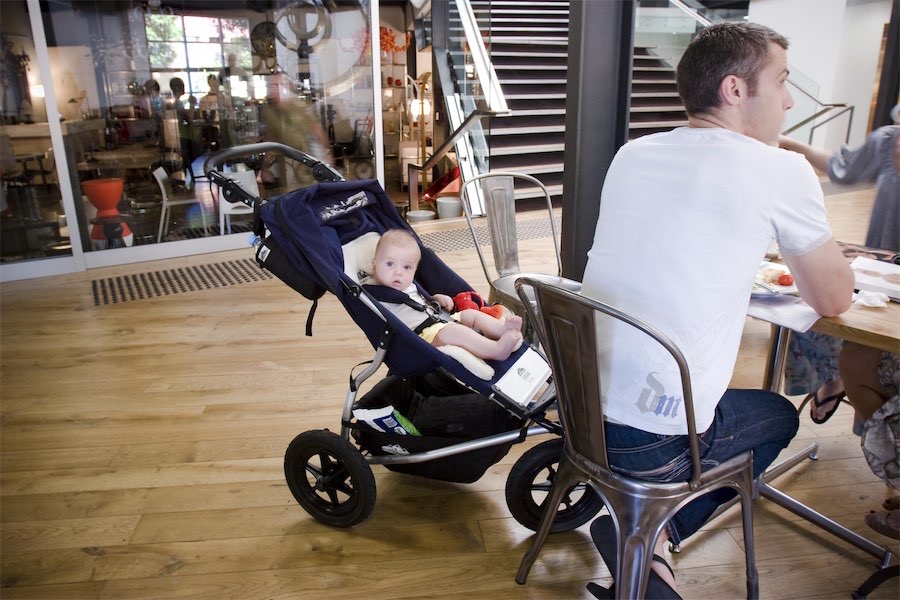
By Dominic Giannini and Poppy Johnston in Canberra
A jump in paid parental leave to 26 weeks will help address the gender pay gap and stop working parents from losing out when they have children, the peak union body has said as legislation cemented the move on Monday.
The 20 weeks of paid leave families can currently access will be gradually bumped up by two weeks each year from July 2024, until the 26-week rate is reached in July 2026.
But those who are on leave when the financial year rolls over will not receive the extra two weeks, with the leave period applied from when an application is made.
The changes are locked in after legislation passed parliament on Monday.
It is expected to benefit more than 180,000 families each year and cost about $4.4 billion annually from 2026/27.
To encourage more two-parent families to share caring duties, four weeks will be reserved for each parent on a “use it or lose it” basis.
Parents will also get greater flexibility and be able to take four weeks of leave at the same time.
The Australian Council of Trade Unions welcomed the increase but called on the government to raise it to 52 weeks.
“We want to see continued improvements in our paid parental leave scheme,” president Michele O’Neil said.
“It still has a fair way to go. We need to make sure that we lift the payments that people receive so it’s higher than the minimum wage.”
Half of women who take leave find their old job is gone when they return to work, while others find their role substantially changed, Ms O’Neil said.
“We got to make sure that you aren’t disadvantaged or discriminated against if you have a baby,” she said.
Independent senators David Pocock and Jacqui Lambie, who support the expanded scheme in principle, pushed for an easier ride for small businesses when processing the payments.
They raised concerns that it placed a heavy administrative burden on small businesses, and argued the task should instead fall to Services Australia unless firms choose to take it on.
“That is so unfair,” Senator Lambie told the chamber.
“Small businesses do not have human resource departments, they don’t have armies of accountants on their payroll.”
Only four per cent of businesses each year would need to administer paid parental leave and costs were minimal in terms of time and money, despite some employers experiencing a few difficulties, Labor senator Malarndirri McCarthy said.
The government was also helping employers streamline the administrative process, she added.
Maintaining a connection to your employer was critically important, Social Services Minister Amanda Rishworth said as she lauded the increase.
“This is a very historic day for Australia, but our work is not done,” she said.
“We’ll continue to work to make sure that our paid parental leave scheme improves.”
The Greens failed in a push for the government to bring forward its pledge to pay superannuation on the government payment from July 2025.
“There is still no justification for why women are being asked to wait for 16 months,” senator Larissa Waters said.
Who can be trusted?
In a world of spin and confusion, there’s never been a more important time to support independent journalism in Canberra.
If you trust our work online and want to enforce the power of independent voices, I invite you to make a small contribution.
Every dollar of support is invested back into our journalism to help keep citynews.com.au strong and free.
Thank you,
Ian Meikle, editor








![Michael Bennett reckons he’s discovered the focal point and connecting image of the bush capital – Telstra Tower atop Black Mountain.
“I slowly figured out that I was seeing [the Telstra Tower] over and over again, especially from Banks,” says Michael.
“That amazed me so much that I thought, ‘if I can see it from Banks, I can see it from just about anywhere’, and so I started taking photos of the tower.”
Michael’s curiosity stemmed from a map of Canberra.
Despite living here since the age of two, he realised there were many suburbs that he just hadn’t seen.
To read the rest of Michael's story, visit our website at citynews.com.au or tap the link in our bio! 📸
#canberranews #citynews #localstories #canberrastories #Citynews #localnews #canberra #journalism #canberracitynews #storiesthatmatter #canberralocals #telstratowercanberra #telstratower](https://scontent.cdninstagram.com/v/t39.30808-6/479498898_1172278498241035_1301680519954749830_n.jpg?stp=dst-jpg_e35_tt6&_nc_cat=109&ccb=1-7&_nc_sid=18de74&_nc_ohc=5T1hd0tjIhgQ7kNvgE3sFcp&_nc_oc=AdiZbDqMzjwWUYlJKF3dd9l7QXaSokarxELQ7J2sZTUPnAp-PF4VPQxLozqMBd_xxDc&_nc_zt=23&_nc_ht=scontent.cdninstagram.com&edm=ANo9K5cEAAAA&_nc_gid=AYCeCn18gzjWp2aumTKjrJi&oh=00_AYByn_o2QSzZkP70pkMYk52NT7SaVRb2cIW1JP81VguXgA&oe=67C06D13)
Leave a Reply